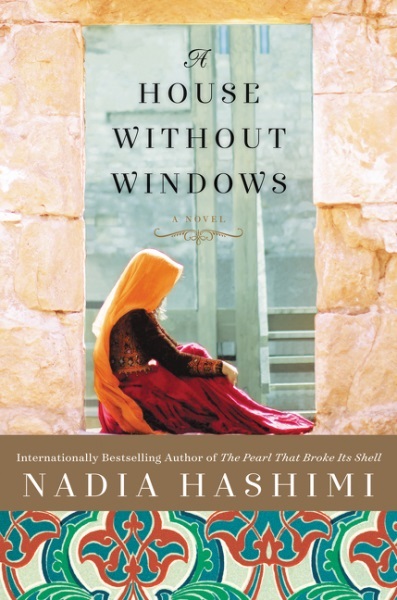A House without Windows by Nadia Hashimi takes you to the women’s world in remote Afghanistan. Yes, the story is not based in urban Kabul but in a remote village. The story takes you through the lives of women who have landed in a prison called ‘Chil Mahtab’.
Protagonist Zeba is accused of murdering her husband. Her 4 children are sent to husband’s family. She lands up in prison. She does not accept or deny killing her husband. Her silence becomes a challenge for her Afghan-born, America returned young lawyer – Yusuf. One must credit Nadia Hashimi for creating the perfect tension while slowly revealing the real reason for her silence. The real reason why she is not denying the crime which she has probably not committed. There is a parallel story of Zeba’s mother who is best known for her tricks and spells. There is, of course, Zeba’s longing and worry for her children who are now without both their parents.
A fascinating part of the book is the women at Chil Mahtab. Most of them are in prison for Zina – which would roughly translate to infidelity. A young girl and her boyfriend are in jail for being in love. Another girl has been seen with a man in public, her brothers want to kill her. Her mother has sent her to prison as this is the only way to keep her alive. A young woman with twins is in jail for getting raped. The fact that she discovered her pregnancy in jail, delivered babies in jail makes our stomach churn. Imagine children who have never seen anything outside a prison. There are two wives of the same man jailed for killing their common husband. They are all waiting for trials. Most of them have no access to legal help.
All their stories talk about the weight of ‘Honour’ on their shoulders. What is interesting is that their cultural conditioning lets them think it is right for them to be punished. During the arguments of Zeba’s case, Nadia Hashimi repeatedly brings out the fact that the weight of witness is half when she is a woman. A very obvious pointer to the deep-rooted inequality in the Afghani judicial system or maybe even in the cultural fabric.
However, within the walls of misery, they all find ways to keep themselves occupied and entertained. The acceptance of their fate, even when there is no hope seems wise. I did learn that jails in Afghanistan have televisions and most of these women are glued to TV with their favorite series. They have a beauty parlor where they love spending time. Women need to look good even if they are surrounded by all women and the same women for years together.
There is a track of talismans and spells. Zeba’s mother performs Jadu or magic to keep evil away and sometimes to be evil Zeba unconsciously learns this from her mother. She ends up using this in jail on a young woman, who not only gets released but also ends up marrying her boyfriend. The other women follow. They all come and narrate their stories to her with the hope that she can help them as well. She becomes their deity. She has no idea if she can help them. Miraculously, some of them do see some light in their dark lives. I am not sure how much the spells work, but I know this is how deities are made. A small success, a big faith, a ray of hope and a strong personality – ingredients of the making of a messiah.
There is a backdrop of the lawyer Yusuf, who moved to America as a young boy that brings out some immigrant dilemmas. His family’s insistence on his getting married talks about the cultural ethos that does not go away with migration.
Language is simple with the generous sprinkling of Afghani terms. As Indians, we can easily follow those terms. The built up of the narrative keep you hooked to the story. Good storytelling by Nadia Hashimi. Check out her website.
Read it if the women’s literature interests you.
You may buy this book A House without Windows by Nadia Hashimi at Amazon.










Nice review Anuradha. I will try reading it.
Sharing this post on twitter and Facebook as today’s blog post of note. ☺
Sure, Harish.